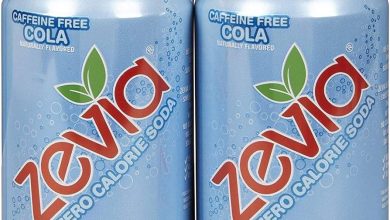Chewing Gum: Nutritional Information
Chewing gum is a popular treat enjoyed by people of all ages, offering a variety of flavors and a refreshing burst of sweetness. While it may not be considered a traditional food, chewing gum can still play a role in your overall dietary intake, particularly for its energy content. It’s important to note that chewing gum is typically consumed in small amounts, so its nutritional contribution is often minimal when considering a complete meal.
Here is a detailed breakdown of the nutritional profile for chewing gum:
Nutritional Breakdown:
| Nutrient | Amount per 100g |
|---|---|
| Energy | 360 kcal |
| Protein | 0.0 g |
| Fat | 0.3 g |
| Saturated Fat | 0.042 g |
| Carbohydrates | 96.7 g |
| Fiber | 2.4 g |
| Sugar | 66.08 g |
| Calcium | 0.0 mg |
| Iron | 0.0 mg |
| Magnesium | 0.0 mg |
| Phosphorus | 0.0 mg |
| Potassium | 2.0 mg |
| Sodium | 1.0 mg |
| Zinc | 0.0 mg |
| Copper | 0.0 mcg |
| Manganese | 0.0 mg |
| Selenium | 0.6 mcg |
| Vitamin C | 0.0 mg |
| Thiamin | 0.0 mg |
| Riboflavin | 0.0 mg |
| Niacin | 0.0 mg |
| Vitamin B6 | 0.0 mg |
| Folate | 0.0 mcg |
| Vitamin B12 | 0.0 mcg |
| Vitamin A | 0.0 mcg |
| Vitamin E | 0.0 mg |
| Vitamin D2 | 0.0 mcg |
Allergen Information:
Chewing gum typically does not contain major allergens, but it is important to check the packaging for any specific allergens related to the flavorings or colorings used in the gum. Common allergens that may be present include artificial sweeteners, flavoring agents, and sometimes gluten or soy. If you have specific allergies, it is advisable to review the ingredient list carefully or consult the manufacturer.
Dietary Considerations:
- Vegetarian/Vegan: Most chewing gum is vegan-friendly as it is generally made from natural latex or synthetic resins, though some gums may contain animal-derived ingredients such as gelatin. Always check labels to ensure the gum aligns with your dietary preferences.
- Gluten-Free: Chewing gum is often gluten-free, but again, it’s essential to verify the label, especially if the gum is flavored or contains additional additives.
- Low-Fat: While chewing gum contains a small amount of fat (0.3 g per 100 g), it is not a significant source of fat, making it suitable for low-fat diets.
- Low-Sugar Options: While chewing gum contains a significant amount of sugar (66.08 g per 100 g), sugar-free gums are readily available and can be a good alternative for those managing their sugar intake.
Health Considerations:
- Dental Health: Chewing gum can actually promote dental health by increasing saliva production, which helps neutralize acids in the mouth and may assist in preventing cavities. Sugar-free gum is particularly beneficial for oral hygiene.
- Digestive Health: The fiber content of chewing gum (2.4 g per 100 g) may provide some digestive benefits, but due to the small quantities typically consumed, it is unlikely to have a significant effect on digestion.
Conclusion:
While chewing gum is often enjoyed for its flavor and as a quick, enjoyable snack, it is best consumed in moderation due to its high sugar content and minimal nutritional value. If you’re looking for a low-calorie, sugar-free alternative, many brands offer sugar-free chewing gum options that still provide the satisfying taste without the added sugars.
Whether for freshening your breath or satisfying your sweet tooth, chewing gum offers a quick and portable solution. However, always be mindful of the ingredients and nutritional content to ensure it aligns with your overall health goals.










